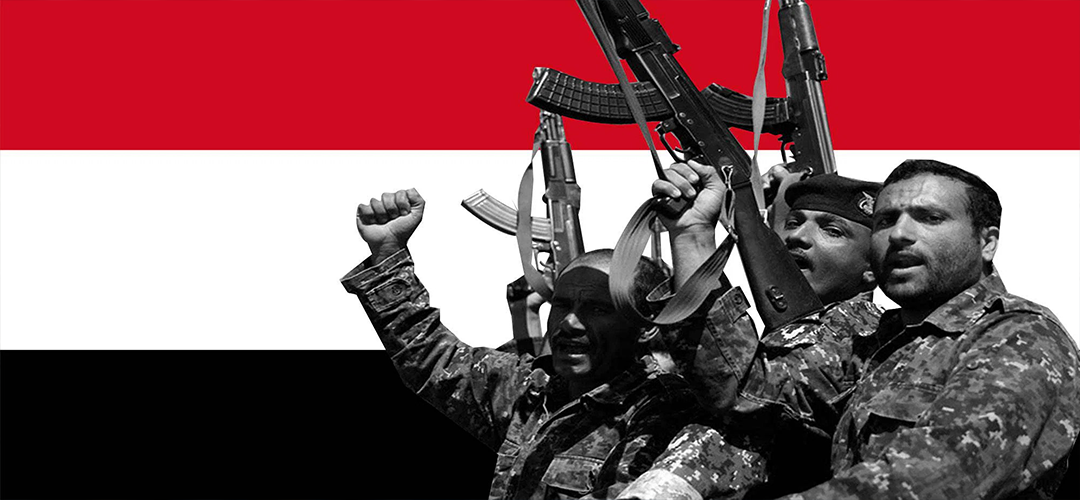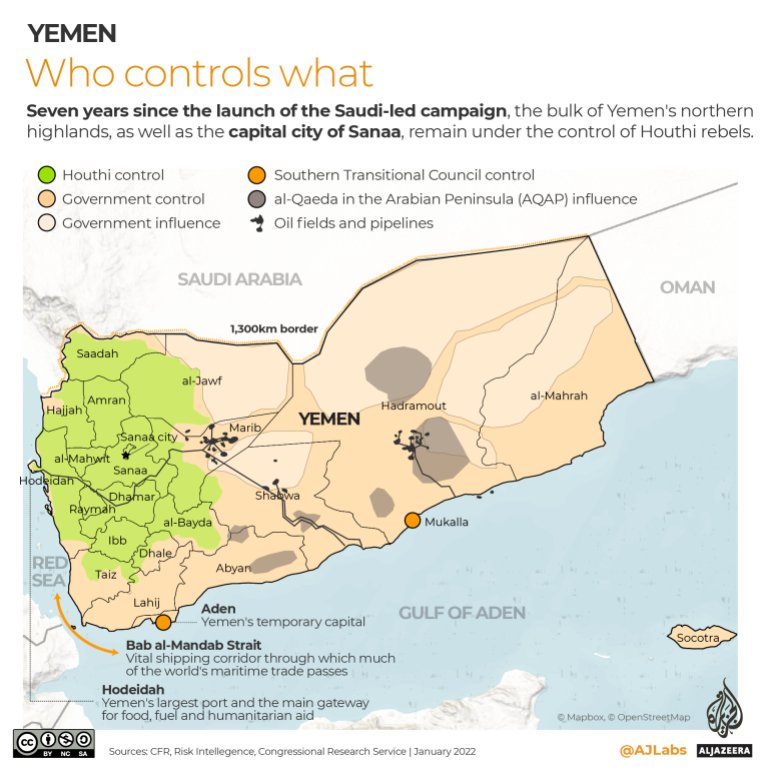YEMEN INTO THE VOID?
October 8, 2022 | Expert Insights

The UN-mediated ceasefire that had been agreed upon in April expired on October 2nd without any additional agreements being made on a third extension. After the longest pause in violence since the war's beginning in 2015, this development raises the possibility that Yemen will be dragged back into fighting.
Background
The UN Special Envoy for Yemen, Hans Grundberg, had pushed for a ceasefire, initially allowing the Houthi-controlled Sanaa airport and the Red Sea port of Hudeyda to reopen partially. It also attempted to lift the Houthi blockade upon Ta'iiz, the third-largest city in the country. The truce had resulted in a dramatic decrease in violence, despite the little progress on achieving a lasting end of cessation and negotiations to resolve the political mess.
While discussions are still underway, both parties blame one another for allowing the agreement to lapse. The Yemeni government accused the Houthis, who also rejected Grundberg's most recent suggestion to extend the ceasefire for six months. With the unconditional reopening of the Sana'a airport and the total removal of the siege upon Hudeyda, Ansar Allah sees many of its demands as being unmet. Another point of contention was the group's demand for payments to public officials in the areas under their control. This demand has so far been unsuccessful due to the challenges in coming up with a suitable mechanism for such payments.

Analysis
The failure to renew the ceasefire, much alone the formation of a permanent truce, constitutes a massive setback to peace efforts in Yemen despite vigorous international and regional diplomatic efforts. Even though limiting the escalation may be the only thing that can be done at this time, it is important to maintain all channels open and the parties concerned talking in the absence of such a settlement. The probable collapse of the ceasefire ultimately highlights the limits of even such unified strategic diplomacy, as the war still has a life of its own that sometimes defies the efforts of international peacemakers. Moving forward will require embracing the limitations of conflicts and understanding the frequently crossing set of self-interests ruling many parties.
In the past seven years of war, the UAE and Saudi Arabia have consistently had divergent agendas, which are reflected in the relationships of their local allies on the ground. This has added another layer of conflict to the anti-Houthis front. The main problem facing the Saudi-led coalition is still this split, which is likely to persist as long as there is no shared understanding among the alliance's members.
There will be terrible humanitarian repercussions if the chance to extend the ceasefire in Yemen is lost. In the past six months, efforts have been made to lessen human suffering and address the nation's fuel shortage while liberating previously besieged areas. Without the ceasefire, fuel imports into the northern part of Yemen will probably be stopped, raising the price of food and other commodities, which is essential for stopping Yemen's food security problem. The parties to the ceasefire are urged to resume talks immediately.
Assessment
- The adverse effects on Saudi Arabia's national security, strategy, and politics would result from failing the national truce extension in Yemen. Regarding national security, the Houthis have already promised to resurrect missile and drone assaults against the infrastructure and oil reserves of Saudi Arabia and the United Arab Emirates, including Red Sea-based targets. The oil price would rise further as a result, which would be good for Riyadh but bad for Saudi border security.
- Strategically, it is possible that the Houthis would resume their military onslaught against the Ma'rib governorate and its energy fields, or even Hodeida city, in flagrant violation of the Stockholm Accords.
- The political after-effects of the situation would also be dire. The Presidential Leadership Council, a Saudi-backed initiative created to reenergize the anti-Houthi front, would become far more fragmented and vulnerable if the national truce collapsed.








Comments